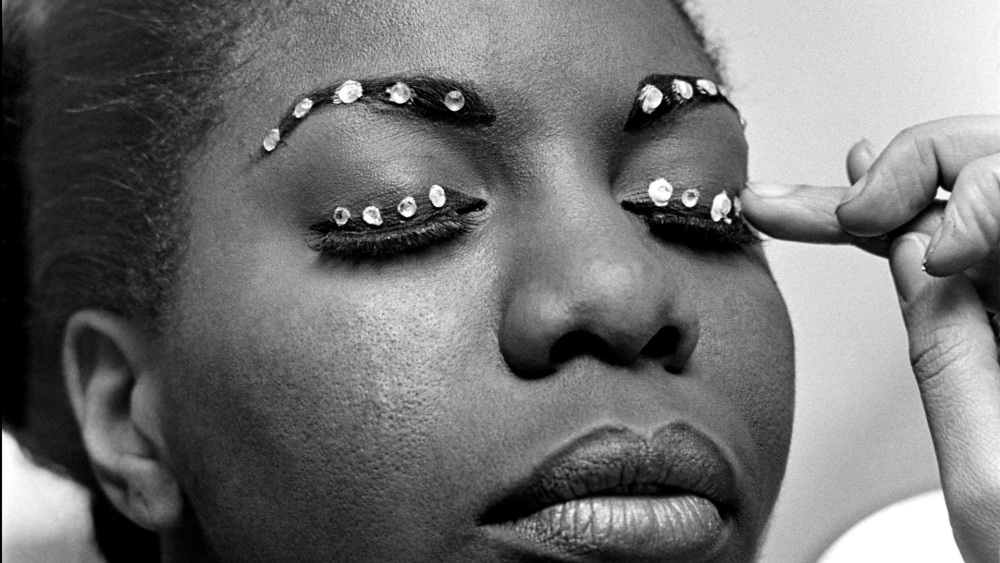Overview and Introduction to my Argument
Nina Simone channels anger on her 1964 live album Nina Simone in Concert by incorporating various intense, isolating vocal timbres and the classically informed piano conventions of periodicity, harmony and melody as musical resistance against her white audience’s expectations of black women musicianship during the Civil Rights movement. When discussing an album as crucial to the Civil Rights movement as In Concert, it can be easy to focus on Nina Simone’s marginalized position as African-American, and only analyze her music through this racial activist lens. This perspective, although limited in scope, invites us to understand Simone’s violent, politically charged lyrics always in context with the history of the Civil Rights movement and the history of her career itself, as In Concert marks a turning point in the subject matter of her songs and a renewal of the overall purpose for her songwriting. However, this method of analysis neglects how Nina Simone, the vocalist and instrumentalist, resisted categorization from the primarily white patriarchal music industry which attempted to define her as simply a “jazz singer.” Focusing on a musical analysis of two of the seven songs from this live album, I will attempt to prove how the performance of Simone’s songs themselves operate as a form of musical resistance against not only the extreme oppression surrounding Nina Simone during the 1960’s, but also against the music industry that strove toward unfairly categorizing her as simply a “jazz singer.”
This musical resistance takes two principal forms. Focusing specifically on the dynamics, timbre and pitch of “Pirate Jenny” and “Mississippi Goddam,” I will first discuss the various vocal techniques Nina Simone employs as a method of subverting her audience’s expectations. Her anger, from both the political implications of the lyrics and her own frustration against the oppression she faces as a black woman in the music industry, seeps into her voice on these songs in order to isolate and scorn her audience as opposed to offering a place of familiarity and refuge. Simone draws her audience into her story, whether they want to hear it or not. Overall, the unpredictable extremities of Nina Simone’s vocal range, her cracking shouts then suddenly raspy and whispering timbres, gives her the agency to command the reactions of her audience, in this case her primarily white audience at Carnegie Hall.
Along with manipulating her voice to work against the expectations of her audience, Nina Simone also incorporates classical piano techniques into her songs such as “Pirate Jenny” and “Mississippi Goddam” as a way to resist musical categorization. Simone’s influences and training in a genre dominated by white men, coupled with her performance in Carnegie Hall, complicates her status as a jazz singer because Carnegie is typically considered a revered accolade for classical instrumentalists and composers. By analyzing Simone’s music in regard to classical conventions such as periodicity, harmony, and melody, I argue that Simone manipulates these elements to aid in the musical expression of anger pointed at her listeners and, in turn, to induce fear from those listeners. In other words, she is “classicalizing” jazz by manipulating classical conventions to stir negative and fearful emotions from her primarily white audience at Carnegie Hall.
In later pages, I will discuss how her audience responded to her live performance in Carnegie Hall, and their critical reactions to her new politicized sound in context with the Civil Rights movement of the 1960s. I attempt to answer the question of how exactly the music industry wished to categorize her sound and why, even today, the common perception of her is as a “jazz singer” or even retrospectively as a “Civil Rights singer”.
(Cover Photo of this page: This is an image of Nina Simone in 1964. The picture shows her presence during the performances at Carnegie Hall in 1964. Note her stoic, confident expression. She demands to be more than what others wanted her to be: simply a “jazz singer,” overlooking her pleas to also be recognized for her classically trained piano skill)
